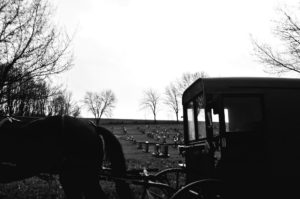A tweet today reminded me of a topic I’ve wanted to get off my chest for some time now:
Remember when both #authors and #publishers thought eBooks were going to replace real books? Me? I prefer holding a real book.
— Jared Kessler (@jaredkessler) June 18, 2017
 To answer Kessler’s question, no, I do not remember any moment in time when authors and publishers (or even readers) thought ebooks would replace paper books.
To answer Kessler’s question, no, I do not remember any moment in time when authors and publishers (or even readers) thought ebooks would replace paper books.
I’ve seen and heard this claim so often I can only conclude some massive rewiring of collective memory has beset our culture. There never was any serious wave of self-congratulatory back-patting in the publishing world, never a moment when all involved parties joined their voices and spoke in unity about the demise of physical books. It never happened.
A Google search of “ebooks will replace physical books” discovers exactly one (1) entry on the front page advocating for such a change—and that page is a summary of a debate from a Maine Writers and Publishers Alliance conference in 2015. An august association, I suppose, but not a representative body for all “#authors and #publishers.”
The remainder of the Google search is an object lesson in Betteridge’s Law: “Any headline that ends in a question mark can be answered by the word no.” The Google search results include:
- Will Paper Books Be Replaced by E-books Soon?
- Can e-books replace paper books?
- Are paper books really disappearing?
- Will electronic books ultimately replace printed books in the future?
- Will E-books eventually replace printed books? (merged with “Are print books dying?”)
As Betteridge predicted, all of these missives declare paper-based books will never die, even though their authors drop in the usual journalistic escape-hatch clauses admitting, yeah, okay, ebooks are here to stay. From the way these writers discuss the issue, you would think there’s zero latitude for personal reading preferences. The mere existence of ebooks is treated as a mortal threat to the traditional form.
Since I publish ebooks, some people seem to presume I’m a kind of cultish advocate for end-of-lifeing paper-based books. I’ve even lost friends over the topic. Only about 50% of my reading diet is digital, the remainder being physical books which I cherish. You can purchase my latest book in paper-form, and I’d be more than delighted if you did.
Look again at Kessler’s tweet; there’s a subtle discrimination packed inside it. Ebooks aren’t “real” books, a frustrating non-distinction for many struggling writers. It’s 2017, the 21st century. Indie music acts sell their songs only online; Netflix and Hulu produce award-winning shows only available via streaming; and yet authors who distribute digitally aren’t writing authentic books. A hundred years ago paperbacks were sneered down on as not “real.” Today the distinction seems quaint.
A nickel’s worth of unsolicited advice to those who prefer physical books: Keep reading and keep buying, but by all means, quit ginning up outrage over a nefarious trend that never happened.
